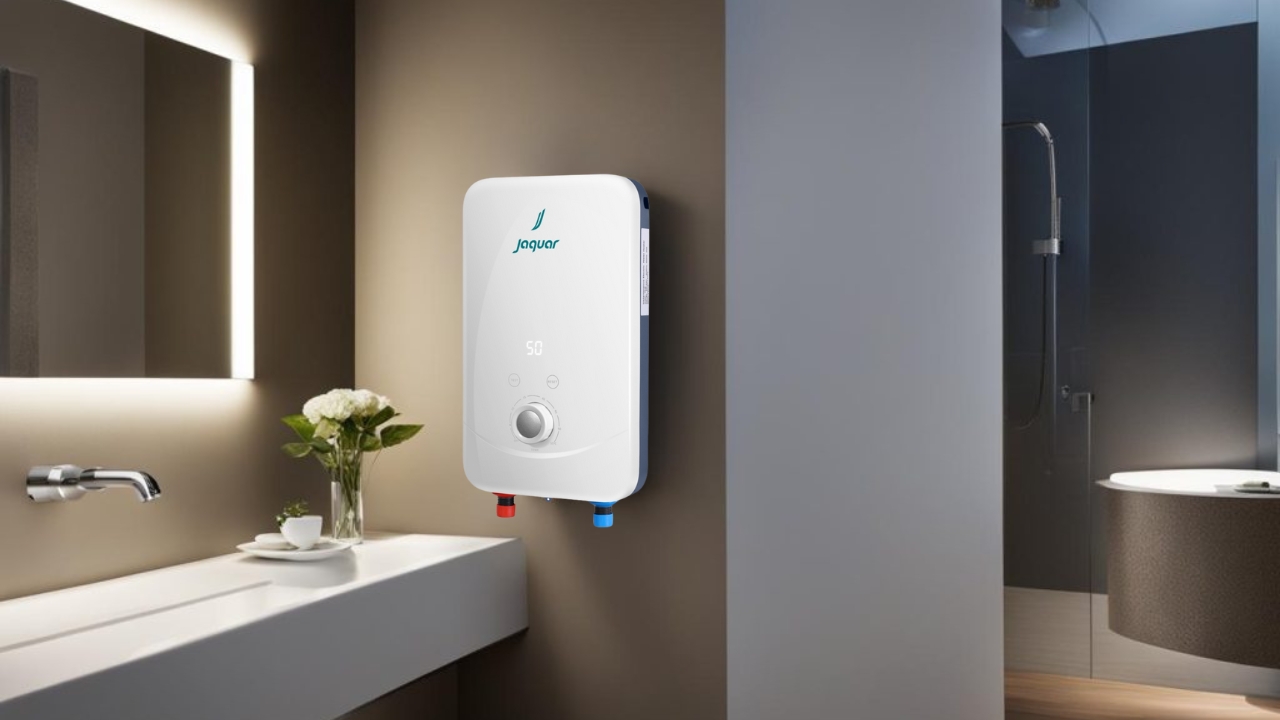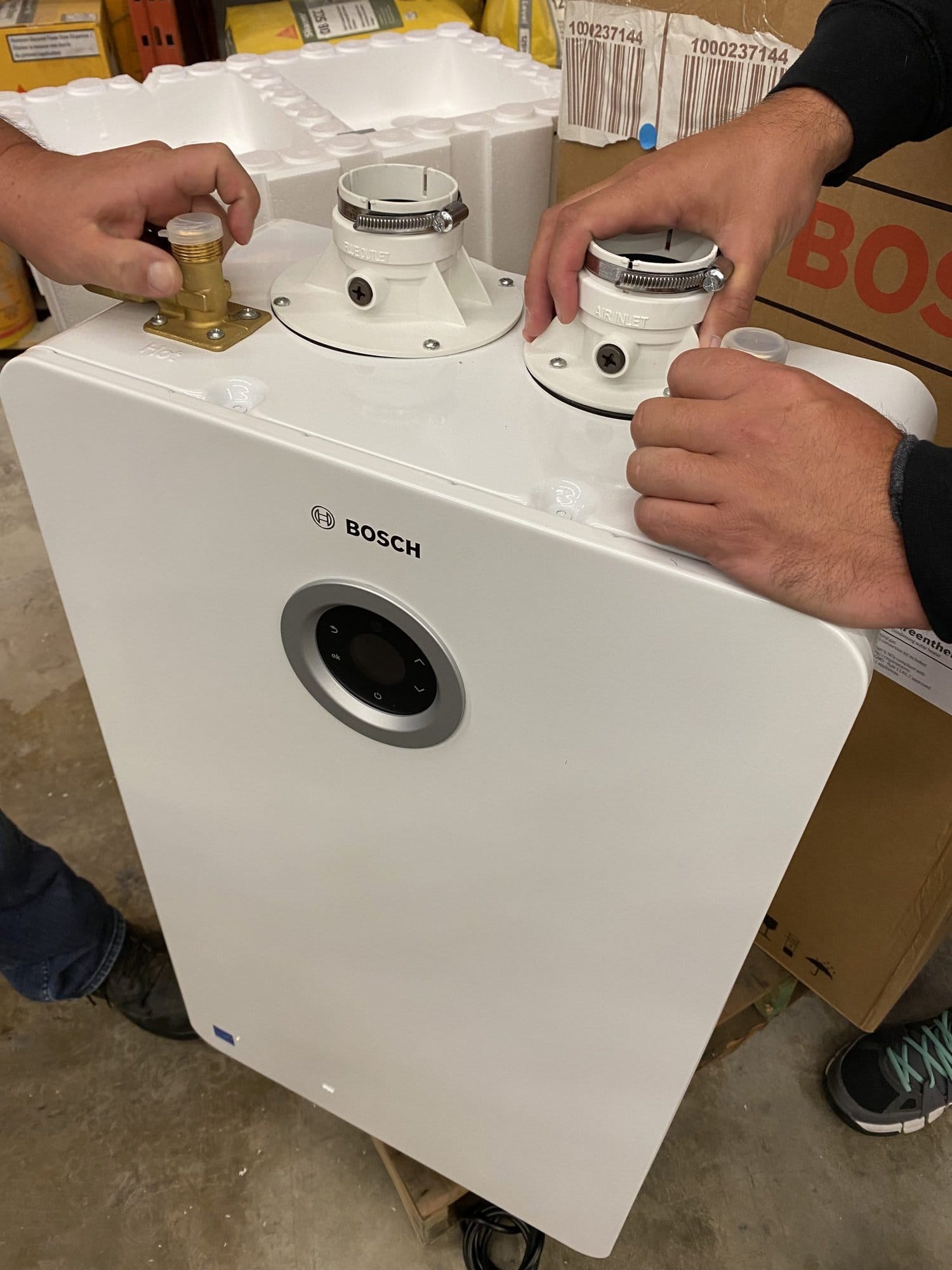In this article further down you will find lots of decent content involving Why You Should Consider a Tankless Water Heater.

In a globe where benefit and performance reign supreme, it's no surprise that home owners are continuously in search of smarter ways to handle their home's power consumption and comfort. One advancement that has progressively acquired appeal is the tankless water heater. But just what makes these systems stand out from the conventional tank-based versions the majority of us grew up with? Let's dive in and discover the benefits of tankless hot water heater, aiding you decide if it's time to make the switch in your home.
Introduction
Photo this: you enter the shower after a long day, expecting a relaxing cascade of hot water, just to be greeted by icy beads due to the fact that the last individual used it all up. Audio acquainted? Traditional hot water heater keep a fixed quantity of hot water, suggesting you're at the grace of that storage tank's supply. Tankless systems, on the other hand, warmth water on demand. Say goodbye to running out mid-shower, say goodbye to wrestling with routines simply to guarantee hot water is offered.
Understanding Tankless Water Heaters
What Are Tankless Hot Water Heater?
Tankless hot water heater, in some cases referred to as on-demand or immediate hot water heater, supply hot water just as it's required. As opposed to saving gallons of pre-heated water, these systems kick into activity the moment you turn on the faucet. Water travels through a warm exchanger, heating up in real-time, indicating you get a continuous circulation of hot water without the need for a big storage tank sitting lazily by.
How Do They Vary from Traditional Solutions?
Traditional heaters hold a tank of hot water, using power to keep that tank at a regular temperature level. Tankless systems get rid of the standing supply, cutting down on thrown away power and the bulky impact of a huge cyndrical tube. Basically, you're upgrading from a "accumulation" frame of mind to a "made-to-order" method.
Typical Types of Tankless Devices
Tankless hot water heater normally come in 2 varieties: gas and electrical. Gas models have a tendency to provide greater flow rates, perfect for larger families, while electrical models often serve smaller sized homes and are typically simpler to mount. Additionally, some systems are developed for point-of-use (offering one component) while others can handle the entire home's hot water requirements.
Secret Benefits of Tankless Hot Water Heater
Power Efficiency and Cost Savings
No more heating a giant tank's worth of water and keeping it toasty all day. Tankless heaters reduce standby energy losses, which can decrease energy costs. While the first price could be higher, the long-term savings typically warrant the financial investment.
3. Space-Saving Style
If your home is short on storage space, getting rid of the bulky tank frees up important area. Tankless units are portable and can typically be mounted on walls, tucked away in corners, or installed in limited energy closets without grabbing all of the whole space.
4. Longer Lifespan
A well-maintained tankless hot water heater can outlive its tank-based cousin. Typical containers might last 10-15 years, while tankless versions can maintain chugging along for two decades or even more, making them a strong financial investment over time.
1. Unlimited Hot Water Supply
Ever needed to schedule showers so every person obtains their reasonable share of hot water? With tankless, that becomes a thing of the past. As long as the heating unit's circulation ability isn't gone beyond, you can take back-to-back showers without turning into a popsicle.
5. Improved Water Quality
Storing water in a tank can occasionally result in sediment buildup or a somewhat "off" taste. With tankless systems, fresh water is warmed right away, reducing the chances of debris accumulation and potentially providing cleaner-tasting water.
Factors to consider Prior To Changing
Though the advantages are compelling, it's smart to take into consideration a couple of variables prior to completely dedicating.
Examining Your Home's Water Use Patterns
If your family all at once utilizes multiple components with high hot water need, make certain the unit's circulation rate fulfills your requirements. Recognizing your usage patterns aids you pick the appropriate size and sort of tankless heating unit.
Maintenance and Care Tips
Tankless systems are fairly reduced maintenance, however they aren't set-it-and-forget-it home appliances.
Normal Cleaning and Descaling
Difficult water minerals can accumulate in the warmth exchanger, affecting effectiveness. Regular descaling (usually recommended every year) maintains the device going for peak performance.
Yearly Specialist Inspections
A yearly checkup from a specialist ensures small concerns are captured early. They'll analyze the device's efficiency, look for leaks, and aid keep ideal effectiveness.
Preliminary Investment Prices
Tankless heating units usually include a higher ahead of time price. Between the unit itself and potential installment adjustments, the initial expense might offer you sticker shock. But bear in mind to view it as a lasting investment.
Installment Demands
Depending on your home's facilities, you might require additional electric ability or gas line upgrades. Ensure you recognize the setup needs and speak with a specialist to stay clear of surprises.
Ensuring Correct Air Flow
For gas designs, correct ventilation is necessary to securely expel exhaust gases. Make certain venting systems are clean and appropriately mounted to stop any possible safety dangers.
Comparing Different Brands and Designs
Not all tankless hot water heater are produced equivalent.
Researching Reliable Producers
Try to find reliable brands with a history of producing quality devices. A reliable supplier often gives far better client assistance and longer guarantees.
Installment: Do It Yourself or Expert?
While some home owners enjoy tackling jobs themselves, tankless setup could not be the best time to burst out the tool kit.
Advantages and disadvantages of DIY Installation
A DIY install could save money, however it comes with threats. Inaccurate setup can cause ineffectiveness or safety problems. If you're handy and have experience, it may be viable-- but proceed with care.
Reviewing Reviews and Individual Comments
Customer evaluations and responses from neighbors or friends who have actually gone tankless can supply important understandings. Often, real-life experiences can be extra informing than marketing sales brochures.
When to Call a Professional Plumbing Technician
For a lot of, calling a professional guarantees whatever's done correctly. A professional plumber recognizes neighborhood codes, sizing needs, and airing vent specifications, decreasing the risk of problems.
Making the most of Effectiveness
You've invested in a tankless unit-- now maximize its performance.
Optimal Temperature Setups
The majority of people set their units in between 120-140 F. Readjusting the temperature can improve comfort and savings. Experiment to find a sweet spot that does not waste power.
Coupling With Low-Flow Fixtures
Intend to extend your unit's capacities? Take into consideration mounting low-flow showerheads and faucets. They lower water usage, permitting your tankless system to supply a consistent stream of hot water without stressing.
Environmental Influence
Tankless water heaters straighten with greener living objectives.
Decreased Carbon Impact
By using less energy and just home heating water as required, tankless systems can lower your home's carbon impact, lowering your environmental impact.
Conserving Natural Resources
Less power usage and less wasted warm water equate into fewer natural deposits being used, an ecological win-win.
That Profits Most from Tankless Heaters?
The beauty of tankless heating units is that they can suit a range of houses.
Huge Families vs. Solitary Occupants
Large families could love the endless hot water supply, while solitary owners value the power cost savings from not heating an entire container for simply a single person's morning shower.
House Owners with Restricted Area
If your home is short on square video footage, losing the cumbersome storage tank frees up area for other fundamentals-- or perhaps simply extra elbow room.
Eco-Conscious Customers
Going tankless aligns with environmentally friendly values, ensuring you're not wasting energy or resources.
Future Trends in Tankless Water Heaters
The world of home appliances is ever-evolving, and tankless water heaters are no exception.
Advancements in Technology
R&D is continuously improving heat exchangers, making units more efficient and long lasting. Future models might be even quieter, much more compact, and far better fit for varying environments.
Smart Home Assimilation
Think of readjusting your hot water heater's temperature level using an application or obtaining upkeep signals on your phone. As wise home tech advancements, we'll see more connectivity and convenience.
Verdict
Picking a tankless water heater is more than simply updating your home's hot water system; it's investing in lasting comfort, energy efficiency, and a greener lifestyle. By considering your family's water usage, bearing in mind setup requirements, and devoting to routine upkeep, you can enjoy a stable stream of warm water without the luggage of a cumbersome tank. As modern technology evolves, you can anticipate even smarter, much more effective tankless options that not just make your life much easier however additionally profit the earth.
Why You Should Consider a Tankless Water Heater for Your Home
Energy Efficiency and Cost Savings
Tankless water heaters, also known as on-demand water heaters, heat water only when needed. This means they don't waste energy keeping a tank of water hot constantly. This efficiency translates into substantial cost savings on your monthly energy bills.
Endless Hot Water Supply
One of the significant advantages of tankless water heaters is their ability to provide a continuous supply of hot water. Traditional tank water heaters have a limited capacity and can run out of hot water, especially during peak usage times. In contrast, tankless water heaters can provide an endless stream of hot water, making them ideal for larger families or homes with high water usage.
Space-Saving Design
Tankless water heaters are compact and take up significantly less space compared to traditional tank heaters. They can be installed on walls, under cabinets, or even outside, freeing up valuable space in your home. This makes tankless water heaters a great option for smaller homes or properties with limited space for a traditional water heater.
Longer Lifespan and Lower Maintenance
Tankless water heaters typically have a longer lifespan compared to traditional tank heaters. They can last up to 20 years or more with proper maintenance. Additionally, tankless systems are designed with replaceable parts, which can extend their lifespan further and reduce long-term maintenance costs.
Environmentally Friendly
Reducing energy consumption not only saves you money but also benefits the environment. Tankless water heaters contribute to a smaller carbon footprint by using less energy to heat water. Their energy efficiency and ability to minimize standby heat loss make them an eco-friendly choice for environmentally conscious homeowners.
Customized Temperature Control
Tankless water heaters offer precise temperature control, allowing you to set the desired temperature to meet your specific needs. This level of customization ensures you always have water at the perfect temperature for your comfort and usage requirements.
https://beantownservices.com/blog/consider-tankless-water-heater-for-your-home

As a devoted reader about Why You Should Consider a Tankless Water Heater, I imagined sharing that piece of content was necessary. Appreciated our blog entry? Please share it. Let another person discover it. I truly appreciate your readership.
Schedule Appointment Now